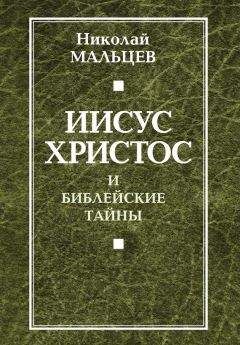John Creasey - Meet The Baron
“Everything’s a darned sight too free-and-easy over here,” broke in Fauntley, whose recent political activities tempted him to mount the platform at the slightest opportunity. “Going to the dogs, that’s what I think, Mannering, and . . .”
“Do try that souffle,” pleaded Lady Fauntley.
Mannering smiled, and the imps of laughter in Lorna’s eyes matched his.
The meal passed as pleasantly as it had begun, and Mannering told himself that Lady Fauntley, passive as she was, had more in her to admire than her husband. But there was not the slightest hint of her in Lorna; the girl seemed of a different class. He was enjoying himself much more than he had expected.
They chatted for a while over the Cockburn 1900. Fauntley was jerky both in manner and speech, a little too self-important, as though he were anxious to prepare his guest for an honour indeed. Mannering smiled when he realised the peer’s pride in his possessions, and his heart beat faster when at last they moved — the two ladies had been with them all the time — from the dining-room to the library and thence to the strong-room, built in one corner. If Fauntley was to be believed the collection held so safely in the room was without parallel in England.
And what did the possession of it mean to Fauntley, beyond an outlet for boastfulness that was already more than annoying?
Mannering pushed the thoughts to the back of his mind as Fauntley opened the door of the strong-room and switched on the light.
“Come along in, Mannering — you’re one of the half-dozen who’ve ever been inside, so you can think yourself honoured. Careful with the door, Lorna; we might get shut in. No one else has a key, and our obituary notices would be out before we were. Ha! Don’t shiver so, Lucy — only my joke.”
Lady Fauntley glanced nervously at the steel door, while her husband played with the combination of one of the sales in the strong-room. Mannering looked round idly. It was as near burglar-proof as a place could be. First the strong-room, with its lock that only gelignite or a key could open. Then the safes inside the room. H’m. If a man wanted to separate Lord Fauntley from some of his precious stones it would be a task worth doing — but as near impossible as anything in the way of cracksmanship. Cracksmanship. . . .
The idea was there now, and growing apace.
Mannering felt tense and excited, and he could hardly keep his eyes off the peer’s fingers. Had ever a man had such an opportunity for learning the combination of a safe first-hand ?
The place was as nearly burglar-proof as it could be, but there were flaws in the system, and not the least was Lord Fauntley’s memory. Fauntley muttered under his breath, and then lost his patience and grumbled aloud.
“Damn the thing! Sorry, Lucy, but I never can remember the numbers. I’ve a note of them somewhere — they’re changed every week, Mannering, just as an added sale-guard.”
“And you need plenty,” Mannering said easily.
“I look after that,” Fauntley said, rooting through his pockets. He brought out a slim black note-book at last, flicked over the pages, and muttered, “Four right — six left — seven right — ten left — four — eight.” He snapped the book to, and returned it briskly to his pocket.
Mannering deliberately looked away from him, but the numbers were turning over in his mind. He could not stop them — he was by no means sure he wanted to.
“Four right — six left — seven right — ten left.” He’d lost the last two, but, providing he looked back in time to see Fauntley’s final turning, he could pick them up again.
His eyes felt hot, and his chest was constricted. With an effort he forced a smile as Lorna’s eyes looked into his, twinkling. What would these people think if they knew what was passing through his mind?
The tumblers were clicking over now. Left, they dropped slowly to ten. Right, one — two — three — four. Left, seven or eight, he wasn’t sure which, for Fauntley broke out: “That’s got him. It needs to be secure, Mannering, but you can leave that to me. My strong-room’s the nearest thing to perfection of its kind in London — and that means the world, let me tell you. For instance” — Fauntley reached for a large leather case in the safe that yawned open now, and made Mannering’s fingers itch — “you noticed I was careful to lock the library door behind us when we came in?”
“Yes.” Mannering looked calm, even though his heart was thumping.
“To warn the servants you were on the prowl ?” mocked Lorna.
“Quiet, my dear. Also to cut off the alarms at the strongroom. I’ve left strict instructions that the library door must never be locked, because when it’s open any touching of the sale or strong-room would send the alarm off — and it’s some row, I can tell you! Ingenious, eh ?”
“Most,” admitted Mannering, and something more than the humour of the situation was gleaming in his eyes.
“Supposing a man came through the window?” asked Lorna.
“It doesn’t make any difference, my dear. I tell you the door’s never locked unless I’m here. Still, that doesn’t matter now. Mannering, have a look at these. . . .”
While he talked, and while Mannering recovered from the effect of the “that doesn’t matter” — could anything matter as much to him as that comprehensive explanation of the first essential for getting at the strong-room without sending the alarm off? — Fauntley had been manipulating the leather case. Now he unlocked it, with a key taken from a ring in his pocket. The light from the single electric lamp in the strong-room seemed to shiver and give fire. The room was a blaze of twinkling lights, of gold and silver and a thousand colours that were never still.
The light shone on diamonds set in the black velvet of the case. A single-piece tiara held the centre, glittering and blazing; rings surrounded it, while beneath it was a necklace, bordered by bracelets that dangled so often on Lady Fauntley’s plump wrists. The room was alive!
“Well?” breathed Fauntley.
“Terrific!” muttered Mannering. “I’d no idea you’d anything like this, Fauntley. Wonderful!”
“Watch this,” said Fauntley.
He was a bundle of excitement as he peered at the stones, and his hands trembled. Lady Fauntley was breathless. Lorna said nothing, and the fire danced from the diamonds to her eyes. Mannering found the spell of the diamonds almost too much for him; for the first time he stopped repeating to himself the numbers of the combination. He’d never forget them now. God! What an idea — cracksmanship!
Fauntley took a pocket-lamp from a shelf in the room and flicked the light on as he held the glass close to the stones. As it travelled, within a few inches of the collection, the diamonds seemed to move like living fire. Shimmering and cascading, fascinating and compelling, they lived.
Fauntley broke the silence at last.
“There you are, Mannering — the Gabrienne collection, reckoned the purest stones found during the early nineteenth century. It’s my prize piece. I’ve others, of course, but in ones and twos; there’s no collection to match this. I’m talking of diamonds, of course. The Karenz rubies are matchless too, and the Deveral sapphires. Let me see . . .” The peer rubbed his forehead and frowned. “You must see the rubies — I think they’re in the third safe.”
Mannering saw them, and a dozen other examples of the jewel-setter’s art that made his eyes agate-hard. He could take gems from this room worth ten or twenty thousand pounds, and Fauntley would hardly notice they were gone. In the safe where the Gabrienne collection was kept there were half a dozen other cases of smaller stones; and he knew the combination! If he managed to get them it might be months before Fauntley missed what had been taken.
He was nearing the end of his run, he knew. The Black-jack-Feodora double helped a little, but unless he stopped gambling his resources would last another month, perhaps; two at the outside. It was absurd, he admitted, to rely on winning enough to keep going; he would soon touch bottom.
What did that mean ?
It meant absolute poverty, the loss of position, the loss of friends, the loss of pleasures. It meant going without clothes — real clothes — and perhaps without food. He had realised all that before, of course, but he had not faced it. He had determined to strain the flesh-pots of indulgence to their utmost, and then let Fate make of him what it wanted. In fact, he admitted, he had never faced what would happen after the crash; he had only known that the crash would come, and that anything was better than the life he had been leading over the past five years. Until the month at Overndon he had been contented enough. He admitted it. But the Overndon month had split him asunder.
What followed had been an interesting experiment.
Mimi Rayford, Madaline Sayer, Alice Vavasour, all had been interesting, up to a point. They had been amusing, up to the same point. Betting was at once interesting, amusing, and occasionally exciting, and consequently was a point above Mimi, Madaline, and Alice; and, of course, there were other people and other things.
They had all been intriguing and amusing and had made life pleasantly varied; occasionally they had even given a notable kick to the business of living. But there had been nothing vital. Vital!
Mannering looked away from the Karenz rubies, and saw Lorna Fauntley’s eyes quizzing his. His lips curved, and hers responded. The mutiny, the mockery, the boredom, in her eyes were lost for a moment, and her teeth flashed.
“Impressed, Mr Mannering?”
“Overwhelmed,” said Mannering truthfully.
“Not the first nor the last,” said Lord Fauntley, locking his precious rubies in their safe. “Well, that’s the lot. Just a minute, Lucy, my dear; you’re in the way. Ha! Well, Mannering? Not many people would like to try conclusions with that strong-room, and an armed man on guard while the best stones are inside. Lucy! Don’t unlock the library door until the strong-room’s closed. All right now, my dear.”
They walked slowly across the library, and Mannering’s mind was humming with the words “and an armed man”. That was something he hadn’t expected. He looked about him, and caught sight of the man sitting unobtrusively in a corner of the room. He was reading, and didn’t look up, even when Fauntley went to a bureau near him, unlocked it, and dropped a key into a drawer. Then he locked the drawer and turned towards the others.
But Mannering knew what had happened, and he could scarcely believe that luck was breaking his way so much. Fauntley kept the key of the strong-room in that bureau. Of course, in many ways it was safe; few people would look for it there, unless they knew it could be found.
Mannering knew; and he was telling himself that the bureau-drawer could be prised open in a few seconds.
He glanced again at the guard, a short, stocky fellow who would be difficult to get past; difficult, but not impossible by any means. . . .
“What are you going to do after that?” asked Lorna.
Mannering, leaning against the marble mantelpiece of the lounge, surveyed his companion silently for several seconds. Lord and Lady Fauntley, abruptly conscious of the duties of parenthood, had disappeared on some mysterious errand, and Mannering had been with their daughter for several minutes. Neither had spoken until that question.
Mannering shrugged his shoulders at last.
“Do I satisfy?” Lorna asked suddenly.
“Y’know, you shouldn’t have said that,” said Mannering. “You’re not made for peddling the obvious.”
“Isn’t this isolation of the young with the eligible just as obvious?” demanded Lorna, her eyes smouldering. “Or do you still preserve your innocence in a world of matchmaking parents?”
“Sometimes it’s folly to be wise,” said Mannering, and took a deep breath. “I like your mother.”
“Poor Dad!”
“Rich, I thought the better word. In more ways than one.”
A tinge of colour flooded the girl’s cheeks. In the soft light of the lounge she had a loveliness that a harsher light might have mocked.
“And are you considering your verdict?” she asked with an effort. “While mother’s saying, “I wonder if” and Dad’s grunting, “Not a chance, m’dear; the little fool’s got no sense.”
“It’s a regular performance, then?”
“Almost a vicious habit. But lately it’s been . . . I’ve been away more often. You may have heard” — her eyes danced — “that I paint.”
He smiled and nodded.
“I’ve heard it rumoured.”
“Of course. So many of your friends belong to the studio set, don’t they?”
Mannering laughed, and took his cigarette-case from his waistcoat-pocket. Lorna shook her head as he proffered it.
“You keep saying what you’re not feeling,” Mannering said, as he selected a cigarette and poised it in the air. “It seems out of character to me. There are pretty cats and pretty women, each admirable of their species, but when a woman turns cat she seems all claws — from the man’s point of view.”
“Some men’s. Anyhow” — she flushed — “I’m sorry. What were you thinking of in there?”
“You want the truth?”
“It’s not entirely out of fashion — even in our age.”
“I was wondering what your eyes would look like if a lamp was held in front of them, as it was held over the diamonds.”
“Ye-es. You’re capable of thinking like that. What else ?”
“I was wondering what the chances were of breaking into the strong-room,” said Mannering, laughing. He hardly knew what dare-devil spirit prompted the statement; it came almost unbidden.
She stared at him for a moment, and he was puzzled by the expression in her eyes.
Finally her lips curved.
“Ye-es,” she said again; “I believe you’re capable of that too.”
“Of thinking of it?”
“Even doing it.”
Mannering lit his cigarette, glad of the chance to keep his eyes averted. God! She was near the mark! And he was a fool to have mentioned the idea.
“H’m. Well, it’s a good job I can resist that temptation,” he said. “I’m not thinking of trying it yet. And now, with the night still young, what next ?”
“I liked that “yet”,” she said.
“Forget it.”
“I doubt if I ever shall, so be careful. As for the rest of the evening, I’d rather like to dance in a crowd, where there’s no room to move or breathe, the noise negroid, and the band to match. But I think it would be fairer to go back to my studio.”
“You sleep there?”
“The question and answer could be misconstrued,” Lorna said, “but I’ll risk it. Yes, sometimes.”
“Why would it be fair?”
“Fairer, I said. Because I dislike rousing false hopes in fond parents.”
Mannering laughed, and smoke streamed from his lips.
“Frankness can be almost a vice,” he said. “But I rarely wonder what others will think. If I’m amused, I’m satisfied.”




